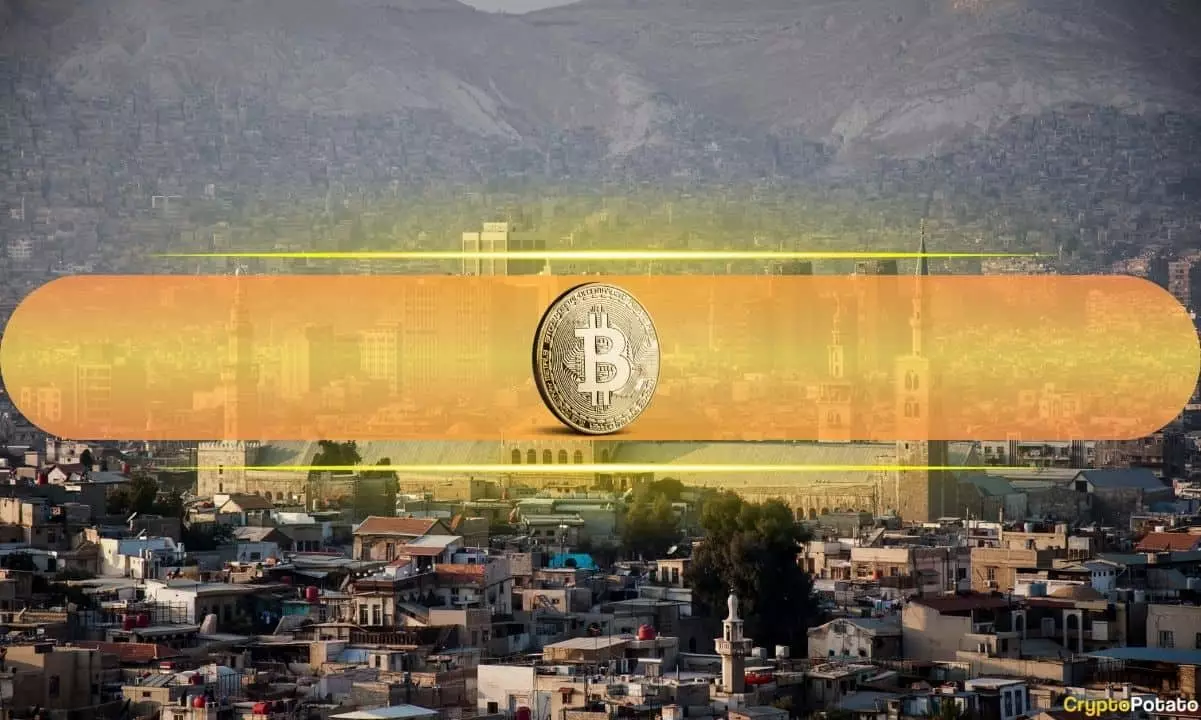The financial landscape in Syria has faced tremendous challenges over the past decade, with hyperinflation and currency devaluation becoming part of everyday life for its citizens. In response to this dire situation, the Syrian Center for Economic Research (SCER) has put forward an ambitious strategy designed to rejuvenate the country’s economy through the legalization of Bitcoin and the digitization of the Syrian pound. The core objective of this proposal is to facilitate the establishment of a robust digital economy that could provide stability, encourage investment, and empower local entrepreneurs.
This initiative represents a significant departure from traditional monetary policies within Syria. By proposing an innovative regulatory framework that embraces both centralized and decentralized banking infrastructures, the SCER aims to tackle some of the most pressing economic challenges facing the nation. The potential benefits of such a transition could be manifold, including reduced inflation rates, a stabilized currency, and the attraction of foreign investment—elements crucial for rebuilding a war-torn economy.
At the center of the SCER’s proposal is the digitization of the Syrian pound, which would involve issuing digital currency minted on a blockchain supported by tangible assets like gold and other reserves. This strategic move, under the supervision of the central bank and relevant regulatory bodies, is expected to revolutionize the way Syrians transact and store value.
Implementing a blockchain-based currency could significantly enhance transaction security and transparency. A decentralized ledger would not only safeguard against fraud and malpractice but also facilitate smoother cross-border remittances, which are vital for many families relying on funds sent from overseas. Furthermore, this proposal aims to spur growth in e-commerce, a sector that is still in its infancy in Syria but holds enormous potential.
Beyond addressing the immediate economic crisis, the proposal casts a wider net of opportunity by aiming to empower local innovators and business owners. By creating a freer market environment, devoid of stringent monopolistic constraints, the SCER hopes to foster an ecosystem in which entrepreneurship can flourish. This initiative emphasizes the importance of establishing private property rights and allowing citizens to exercise complete self-custody over their digital assets—critical factors in stimulating economic activity and individual agency.
Additionally, the strategy encourages the modernization of financial institutions and supports startups focused on cryptocurrency and blockchain technologies. By tapping into the potential of these digital assets, Syria could pivot towards a future where it is not just a consumer of technology but also a contributor to the global digital landscape.
However, it would be naive to overlook the substantial hurdles that lie ahead. The SCER’s initiative, while visionary, faces significant obstacles, including inadequate technological infrastructure, a general lack of public awareness about digital currencies, and the geopolitical complexities that have stifled Syria’s growth for years. The transitional government has yet to endorse this plan, highlighting the urgency with which underlying issues must be addressed first.
Moreover, the SCER has explicitly stated that the initiative is not intended as a means to bypass international sanctions against Syria. The recent remarks from the new Foreign Minister, Asaad Hassan al-Shibani, signal a shifting viewpoint on these sanctions, which he argues are detrimental to ordinary citizens and the nation’s recovery. This reflection sheds light on the absurdity of punitive measures that persist long after their initial purpose has been overshadowed by political changes.
The SCER’s proposal for legalizing Bitcoin and digitizing the Syrian pound emerges as a potentially transformative strategy amidst a landscape marked by economic despair. While the envisioned changes promise to stabilize the economy and radically empower local entrepreneurs, the effectiveness of such initiatives hinges on the transitional government’s willingness to engage with these ideas and prioritize infrastructural development.
As Syria stands at a crossroads, the challenges remain formidable, but there is also a glimmer of hope in the form of innovative solutions. With a commitment to modernize and embrace the digital economy, the country could embark on a journey of renewal, breaking free from a turbulent past to forge a more promising future.


Leave a Reply